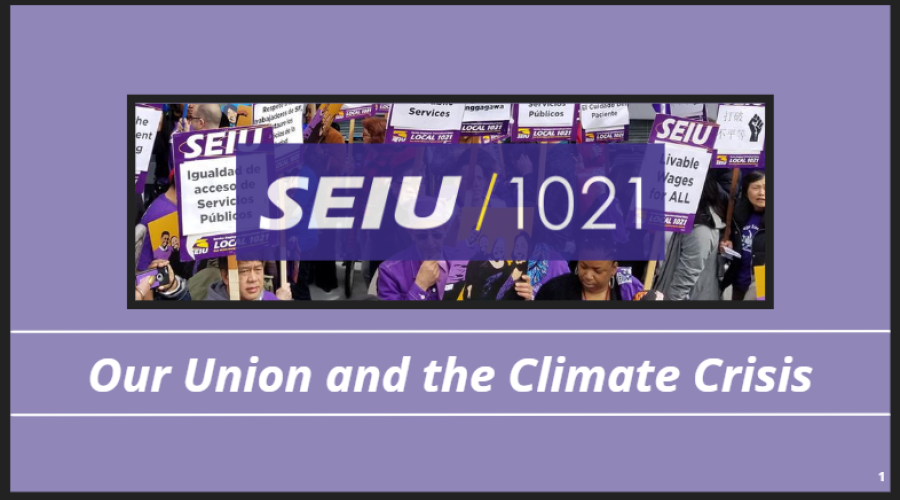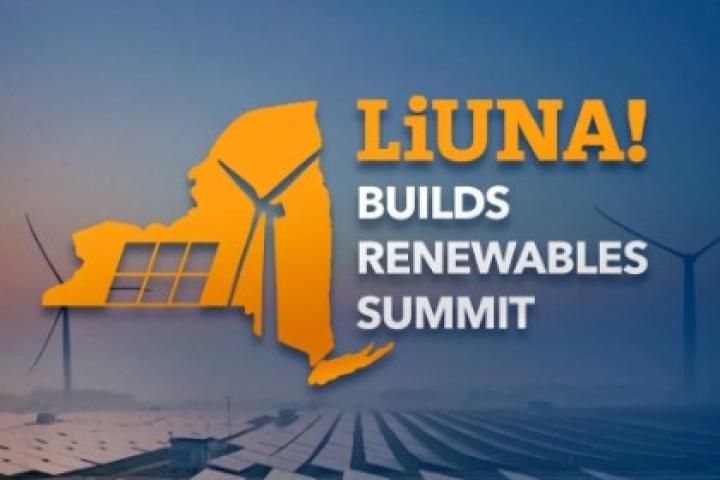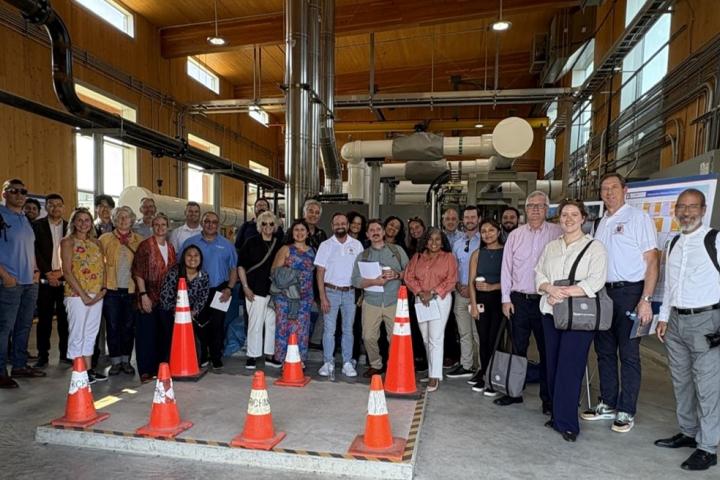
Cunningham delivers multiple training sessions for members of Northern California’s SEIU Local 1021
On Saturday, October 29th, Cornell's Labor Leading on Climate facilitated two training sessions for members of Northern California’s SEIU Local 1021. The sessions - co-facilitated by the Climate Jobs National Resource Center (CJNRC) and leaders from Local 1021 - were part of the union’s Education Industry Summit, which brought together members from K-12 school districts and community colleges. Each training had approximately 50 members in attendance.
The first session was titled “What Does Climate Justice Mean for School Workers?” Participants reflected on how climate change affects their communities and workplaces, learned about various efforts unions across the country are taking to combat the climate crisis, and brainstormed ways they could get involved in the fight. Members shared stories about the prevalence of asthma, wildfires, and extreme heat in their area. They also spoke about the need for more investments in school facilities to create healthy, safe working and learning conditions.
The second session, titled “Strategies for Advancing Climate Justice in Bargaining,” took a deeper look at the work Local 1021, CJNRC, and the Worker Institute have done together in recent months. Union members discussed why it makes strategic sense to use collective bargaining agreements to push for climate justice measures, such as decarbonizing school buildings and replacing diesel buses with electric models.
Cornell's Zach Cunningham and Local 1021’s Kaden Kratzer outlined specific bargaining proposals members could negotiate with management in this session. CJNRC’s Dave Hancock also outlined federal and state funding that can be used for such projects, including provisions of the recently-passed Inflation Reduction Act (IRA) that allow public entities for the first time to take advantage of federal tax incentives on renewable energy and energy efficiency projects.
Local 1021 members and leaders have already started reaching out to school districts and community colleges to discuss climate action and funding mechanisms. Moving forward, the union will continue to expand its work in this area in collaboration with CJNRC and Cornell.



